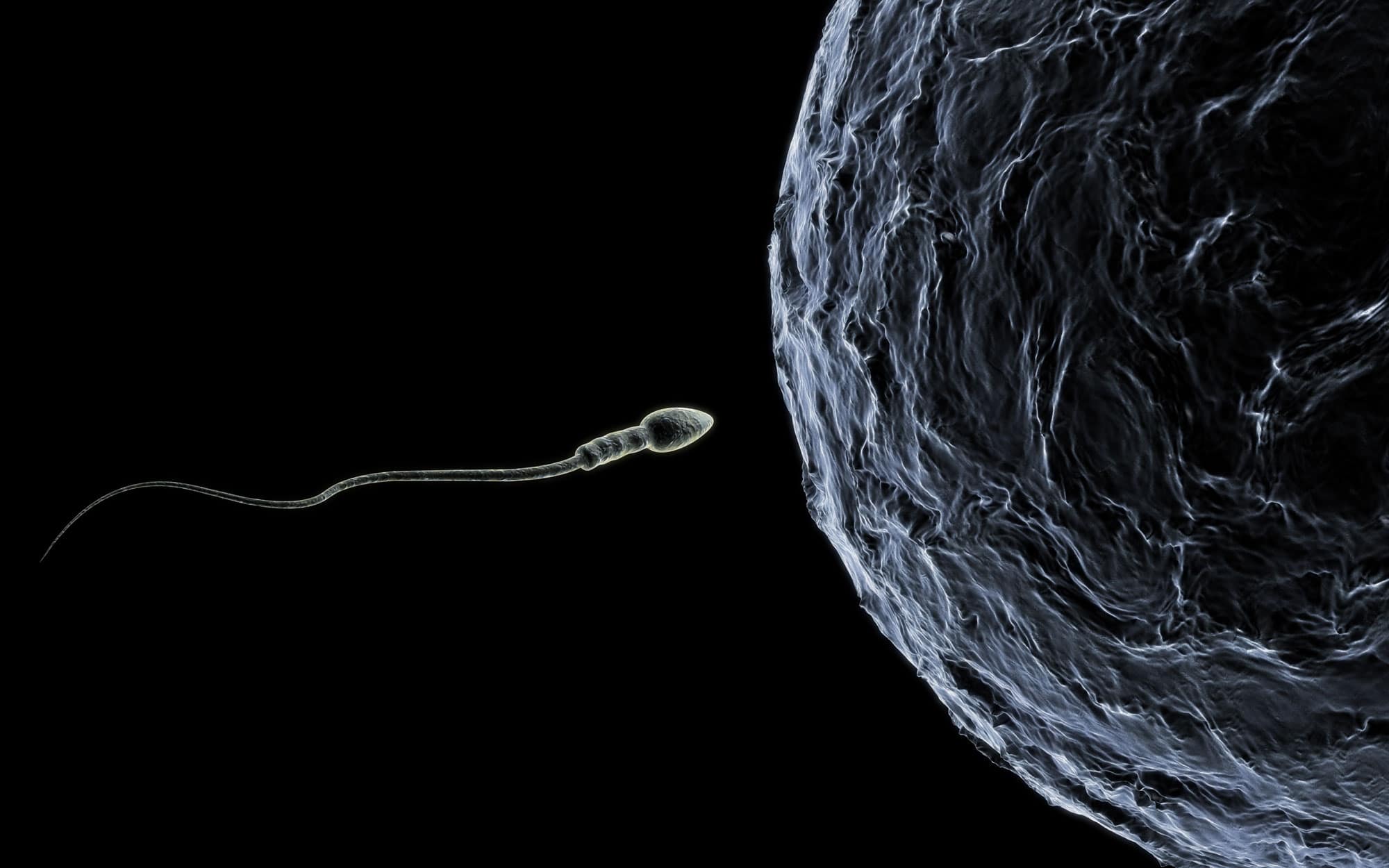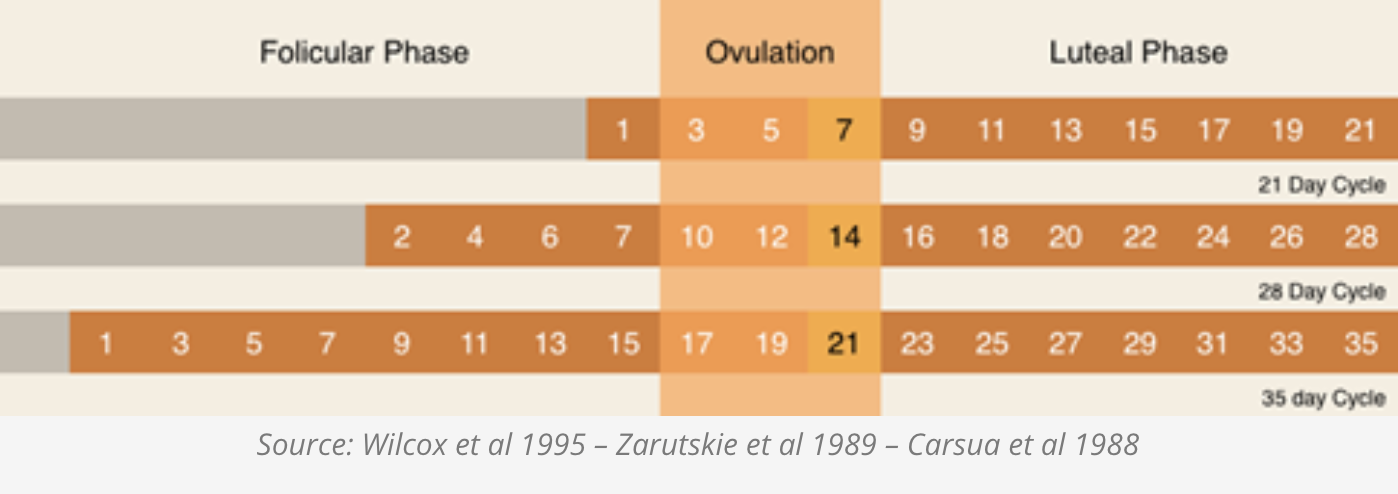Not many people openly discuss the difficulties falling pregnant, and there is certainly a lack of awareness about female fertility in Australia. Most people have no idea how common fertility challenges are for women or how daunting it can be to overcome these obstacles.
The latest statistics show that:
Unlike many other fertility clinics in Sydney, Fertility First will not discriminate against age, social status or sexual orientation and have assisted female patients of up to 48 years of age achieve a successful pregnancy using their own eggs.
Endometriosis is a painful condition affecting 1 in 10 women. It occurs when uterine tissue grows outside the uterus, causing symptoms like pelvic pain, heavy bleeding, and difficulty conceiving.
This chronic disease can significantly impact your life, both physically and emotionally. But you're not alone. Fertility First specialises in helping women with endometriosis achieve pregnancy.
Our tailored treatments combine medication, surgery, and assisted reproductive technologies to overcome the challenges of endometriosis.
Polycystic ovary syndrome (PCOS) affects 1 in 5 women, causing hormonal imbalances, irregular periods, and difficulty conceiving. Symptoms include excess hair, acne, weight gain, and mood swings.
While PCOS can impact your physical and mental health, it's treatable. Our fertility experts offer personalised plans combining lifestyle changes, medication, and advanced treatments to help you achieve pregnancy.
PCOS increases your risk of long-term health issues. Early diagnosis and management are crucial.
Struggling to conceive after a previous pregnancy is called secondary infertility. This can be just as emotionally challenging as primary infertility.
Common causes include age, previous pregnancy complications, and factors affecting both partners (like endometriosis or low sperm count).
At Fertility First, we understand the unique challenges you face. Age-related fertility decline is real, but we offer tailored treatments, including donor egg options, to help you achieve your family goals.
Secondary infertility is often overlooked, but it affects 11% of couples. The pressure to have another child can be overwhelming, and insensitive comments from others can add to the stress.
Our compassionate team provides comprehensive support and treatments. Let us help you navigate this journey.
Pelvic Inflammatory Disease (PID) is a serious infection of the female reproductive organs that can lead to infertility. Caused by bacteria traveling up the vagina, PID can scar and block the fallopian tubes, hindering egg transportation. Early diagnosis and treatment are crucial to prevent long-term complications.
Symptoms of PID can include pelvic pain, abnormal vaginal discharge, fever, pain during sex, and painful urination. If you experience any of these symptoms, it's crucial to seek medical attention promptly.
At Fertility First, we understand the emotional and physical toll PID can take. Our experienced team offers comprehensive care, including diagnosis, treatment, and fertility options for those affected by PID. We provide a supportive environment and personalised treatment plans to help you overcome the challenges of infertility.
Dr Anne Clark, the Medical Director, has worked in this area of medicine for more than 32 years. She was Australia’s first accredited female specialist working in reproductive endocrinology and infertility. She is the elected medical representative on the Board of the Fertility Society of Australia and New Zealand, the national governing body. She is also on the executive of the IVF Directors Group and a Director of ACCESS, the national patient support group at their invitation. She lectures nationally and internationally on fertility health and well being and is an expert on polycystic ovarian disease.
Key things to consider before making your first fertility appointment

An embryo transfer is very similar to having an IUI or an pap test performed. It is essentially uncomplicated, simple and does not require readmission to theatre.

An immature egg is an oocyte that has not reached meiotic competency, meaning it hasn’t reached the first stages of meiotic division.

Assessing and correcting fertility problems is the first step in any fertility treatment and at Fertility First, we want to make the process as easy as possible with minimal invasiveness.

Usually out of the eggs retrieved, we expect approximately 80% to be mature, and of those, between 60 to 80% will fertilise normally. This is perfectly normal.
Female infertility is defined as trying to actively fall pregnant with frequent intercourse for at least one year with no success. It is sometimes difficult to diagnose fertility problems in females and we recognise that every woman is different, that is why we offer many different fertility treatment options and a range of fertility tests available to help determine what the underlying problem is.
It is estimated that 1 in 6 couples will have difficulty falling pregnant and approximately 30% of fertility problems will originate with the female. The most common causes of female infertility involve ovulation problems, polycystic ovary syndrome, issues with the fallopian tubes, implantation problems and endometriosis.
As a woman ages, her fertility naturally declines. This is primarily due to changes in egg quality and quantity. Egg quality tends to deteriorate over time, making it more difficult for eggs to fertilize and develop into healthy embryos. Additionally, the number of eggs available for ovulation decreases with age.
Recent studies have also highlighted the potential role of chromosomal defects in fertility problems among older women.While the exact mechanisms are still being investigated, chromosomal abnormalities can interfere with the development and implantation of embryos.
At Fertility First Sydney, our experienced fertility specialists can provide personalised guidance and support to women facing age-related fertility challenges. We offer a range of treatments and techniques to help optimise your chances of conception, even if you are over the age of 35.
Female infertility can occur due to a variety for factors, including ovulation disorders, hormone imbalances, thyroid gland problems, damage of the fallopian tubes that will impact fertilisation, physiological issues with the uterus or cervix, endometriosis, fibroids, a lowered egg reserve due to premature menopause or simply age.
It’s important to note that these are just some of the possible causes of female infertility, and the underlying reason for infertility can vary greatly from person to person. If you are looking for more personalised information to help naviagate your fertility journey, schedule a consultation with one of our Sydney fertility specialists.
While there is still ongoing research in the area of nutrition and fertility, studies have suggested that certain dietary factors can influence fertility. Consuming a balanced diet rich in essential nutrients, such as vitamins, minerals, and antioxidants, can support overall reproductive health which may in turn increase chances of conception.
Some specific nutrients that have been linked to fertility include, folic acid, iron, zinc and antioxidants.
While our guide to how to improve fertility offers valuable information and guidance for those facing female infertility challenges, It’s important to consult with a healthcare professional or registered dietitian for personalised dietary advice.
If you’ve been trying to conceive for over a year without success, it’s recommended to seek fertility advice. If you’re over 35, you may want to consult a fertility specialist after six months of trying to conceive.
Early intervention can increase your chances of successful treatment. Our Sydney fertility experts at the Fertility First clinic can assess your situation, identify potential causes of infertility, and recommend appropriate fertility testing and treatment options.
Use our calculator to determine the fertile time for different cycle lengths (14-19 days before next period). The fertility window will differ depending on the length of your cycle.

At Fertility First Sydney, our experienced fertility specialists employ a comprehensive approach to diagnose female infertility. This may involve a combination of the following:
This information is general and may not apply to your individual situation. Depending on your individual circumstances, additional testing may be required. If you are interested in finding out more about how infertility is diagnosed, please reach out to our team of Sydney fertility specialists and schedule a consultation.
P: 02 9586 3311
E: admin@fertilityfirst.com.au
50-52 Gloucester Rd,
Hurstville,
NSW 2220
© 2025 All rights reserved.
Privacy Policy | Website Design & Development – kiincreativeagency.com.au